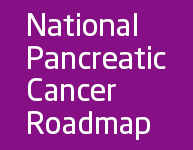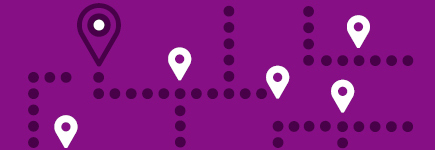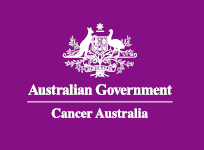About you
1. I consent to my response being published on the Department of Health website, and acknowledge that it will be publicly accessible, including to people overseas. My consent is given in accordance with the following preference:
Please select one item
(Required)
Radio button:
Unticked
Publish my response, including my name and the name of my organisation (if relevant)
Radio button:
Unticked
Publish my response, without my name but include the name of my organisation (if relevant)
Radio button:
Ticked
Publish my response without my name or the name of my organisation
Radio button:
Unticked
I do not consent to my response being published on the Department of Health website. Do not publish my response
5. Are you of Aboriginal or Torres Strait Islander origin?
Please select all that apply
(Required)
Checkbox:
Ticked
No
Checkbox:
Unticked
Yes, Aboriginal
Checkbox:
Unticked
Yes, Torres Strait Islander
Checkbox:
Unticked
Prefer not to say
7. What is your interest in pancreatic cancer?
Please select all that apply
(Required)
Checkbox:
Unticked
I have / have had pancreatic cancer
Checkbox:
Ticked
I have a family member / relative with pancreatic cancer
Checkbox:
Unticked
I am a member of the public / general interest
Checkbox:
Unticked
I have a work-related interest in pancreatic cancer - Health professional – primary care
Checkbox:
Unticked
I have a work-related interest in pancreatic cancer - Health professional – specialist
Checkbox:
Unticked
I have a work-related interest in pancreatic cancer – Health professional - nurse
Checkbox:
Unticked
I have a work-related interest in pancreatic cancer - Health professional – allied health
Checkbox:
Unticked
I have a work-related interest in pancreatic cancer – Aboriginal and Torres Strait Islander Health Worker / Health Professional
Checkbox:
Unticked
I have a work-related interest in pancreatic cancer - Researcher
Checkbox:
Unticked
I have a work-related interest in pancreatic cancer - Health policy / administration
Checkbox:
Unticked
I have a work-related interest in pancreatic cancer - Consumer advocacy / support
National Pancreatic Cancer Roadmap
12. What do you think are the most important issues to be addressed in pancreatic cancer in Australia?
What do you think are the most important issues to be addressed in pancreatic cancer in Australia?
Earlier diagnoses. People struggle to be diagnosed using commonly available methods (blood tests, ultrasound, CT). My father required an endoscopic ultrasound to have it confirmed that he had a golf ball-sized tumour on his pancreas, and at the time there was only 1 hospital in Sydney that had that diagnostic tool. It took way too long to be diagnosed.
We also need better treatment options - chemo doesn't work that well, surgery isn't always possible - we need to think outside of the traditional options.
Palliative/pain management is vitally important as well and should be part of the initial treatment plans upon diagnosis.
We also need better treatment options - chemo doesn't work that well, surgery isn't always possible - we need to think outside of the traditional options.
Palliative/pain management is vitally important as well and should be part of the initial treatment plans upon diagnosis.
13. What do you think could make the biggest difference in improving outcomes for people with pancreatic cancer in Australia?
What do you think could make the biggest difference in improving outcomes for people with pancreatic cancer in Australia?
Early diagnosis and better treatments
15. What do you think are the main challenges and opportunities in the clinical care of pancreatic cancer in Australia?
What do you think are the main challenges and opportunities in the clinical care of pancreatic cancer in Australia?
It's a lower number of diagnoses, but a higher number of deaths. It's hard to diagnose and harder to treat.
16. What do you think are the main challenges and opportunities for research into pancreatic cancer (including basic research and clinical trials)?
What do you think are the main challenges and opportunities for research into pancreatic cancer (including basic research and clinical trials)?
We definitely need better research on treatment and more clinical trials.
17. Do you have any other comments and / or insights from your own experience with pancreatic cancer that you think would be helpful to inform the roadmap?
Do you have any other comments and / or insights from your own experience with pancreatic cancer that you think would be helpful to inform the roadmap?
My grandfather died of pancreatic cancer in 1963. My father died of it in 2009 and the chances of my father surviving the same disease was the same as my grandfather, even though it was 46 years later.
BReast cancer has had millions and millions of dollars thrown at funding, at research. We do DNA tests for those who are diagnosed with it. Prostate cancer you can live with for many years, as again treatment and diagnosis is well advanced and funding is high.
Pancreatic cancer is indeed the orphan cancer. It leaves so little survivors to front the fight for money and research and advancement. It needs a lot more attention.
BReast cancer has had millions and millions of dollars thrown at funding, at research. We do DNA tests for those who are diagnosed with it. Prostate cancer you can live with for many years, as again treatment and diagnosis is well advanced and funding is high.
Pancreatic cancer is indeed the orphan cancer. It leaves so little survivors to front the fight for money and research and advancement. It needs a lot more attention.



